-
 bitcoin
bitcoin $87959.907984 USD
1.34% -
 ethereum
ethereum $2920.497338 USD
3.04% -
 tether
tether $0.999775 USD
0.00% -
 xrp
xrp $2.237324 USD
8.12% -
 bnb
bnb $860.243768 USD
0.90% -
 solana
solana $138.089498 USD
5.43% -
 usd-coin
usd-coin $0.999807 USD
0.01% -
 tron
tron $0.272801 USD
-1.53% -
 dogecoin
dogecoin $0.150904 USD
2.96% -
 cardano
cardano $0.421635 USD
1.97% -
 hyperliquid
hyperliquid $32.152445 USD
2.23% -
 bitcoin-cash
bitcoin-cash $533.301069 USD
-1.94% -
 chainlink
chainlink $12.953417 USD
2.68% -
 unus-sed-leo
unus-sed-leo $9.535951 USD
0.73% -
 zcash
zcash $521.483386 USD
-2.87%
How to understand Bitcoin mining
Bitcoin mining involves solving complex mathematical puzzles with specialized computers to verify and add transaction records to the Bitcoin blockchain.
Jan 10, 2025 at 05:30 am
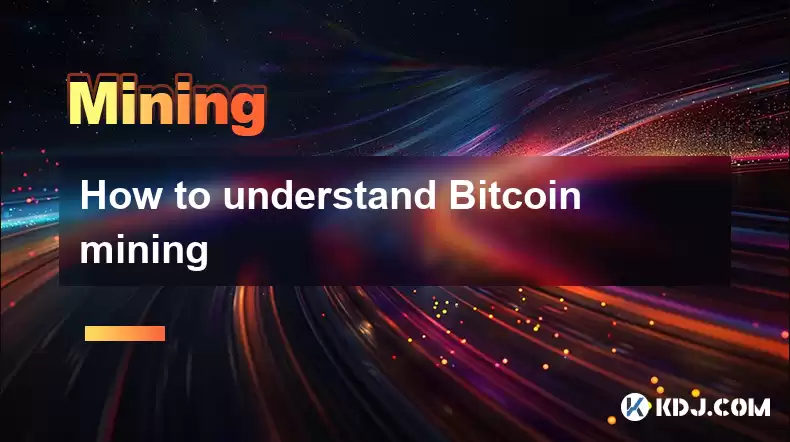
Key Points of Bitcoin Mining
- Overview of Bitcoin Mining
- Setting Up a Bitcoin Mining Rig
- Joining a Mining Pool
- Monitoring and Troubleshooting Mining Operations
- Optimizing Mining Profits
Overview of Bitcoin Mining
Bitcoin mining is the process of verifying and adding transaction records to the Bitcoin blockchain. It involves solving complex mathematical problems using specialized computers called ASICs. Miners who successfully solve these problems receive a block reward in the form of Bitcoin. Bitcoin mining secures the network by ensuring the integrity and immutability of the blockchain.
Setting Up a Bitcoin Mining Rig
To start mining Bitcoin, you need to set up a mining rig consisting of:
- ASIC Miners: Specialized computers designed for Bitcoin mining.
- Cooling System: To prevent overheating of ASICs.
- Power Supply: To provide sufficient power to the rig.
- Mining Software: Software that connects your rig to the Bitcoin network.
Joining a Mining Pool
Solo mining, where individual miners attempt to solve blocks independently, is rarely profitable due to low chances of success. Instead, most miners join mining pools to increase their odds of receiving block rewards. Mining pools distribute rewards proportionally among members based on their contributions to the pool's hashrate.
Monitoring and Troubleshooting Mining Operations
To ensure optimal performance, it's crucial to monitor your mining rig's:
- Hashrate: Measures the computational power of your rig.
- Temperature: ASICs can overheat, reducing efficiency.
- Power Consumption: High power consumption can increase operating costs.
Optimizing Mining Profits
To maximize profitability, consider:
- Using Efficient ASICs: Invest in high-performance ASICs with low power consumption.
- Joining a Reputable Mining Pool: Choose a pool with a stable payout system and low fees.
- Optimizing Rig Configuration: Adjust settings to enhance hashrate while minimizing power usage.
- Monitoring Electricity Costs: Consider mining regions with affordable electricity rates.
FAQs on Bitcoin Mining
1. How much does it cost to mine Bitcoin?The cost of mining Bitcoin depends on factors such as hardware costs, electricity rates, and mining pool fees. It's generally not profitable for individual miners to mine Bitcoin solo.
2. What is the best mining pool?The best mining pool depends on factors such as pool size, hashrate, payout system, and fees. Some popular mining pools include Slush Pool, F2Pool, and AntPool.
3. How long does it take to mine a Bitcoin block?The average time it takes to mine a Bitcoin block is approximately 10 minutes. However, the actual time can vary depending on the network difficulty.
4. Is Bitcoin mining profitable?Bitcoin mining profitability varies depending on factors such as electricity costs, mining hardware efficiency, and Bitcoin price. The profitability can fluctuate over time.
5. What is the future of Bitcoin mining?The future of Bitcoin mining is uncertain, but technological advancements and increasing network security may continue its relevance. Alternative mining methods such as cloud mining may also play a role.
Disclaimer:info@kdj.com
The information provided is not trading advice. kdj.com does not assume any responsibility for any investments made based on the information provided in this article. Cryptocurrencies are highly volatile and it is highly recommended that you invest with caution after thorough research!
If you believe that the content used on this website infringes your copyright, please contact us immediately (info@kdj.com) and we will delete it promptly.
- Crypto Coaster: Bitcoin Navigates Intense Liquidation Hunt as Markets Reel
- 2026-02-01 00:40:02
- Rare £1 Coin Error Could Be Worth £2,500: Are You Carrying a Fortune?
- 2026-02-01 00:45:01
- Navigating the Crypto Landscape: Risk vs Reward in Solana Dips and the Allure of Crypto Presales
- 2026-02-01 01:10:01
- NVIDIA CEO Jensen Huang's Take: Crypto as Energy Storage and the Evolving Role of Tech CEOs
- 2026-02-01 01:15:02
- Bitcoin Bears Bleeding: Crypto Market Navigates Uncertainty Amidst Shifting Sands
- 2026-02-01 01:10:01
- The £1 Error Coin That Could Fetch You £2,500: A Microscopic Fortune in Your Change
- 2026-02-01 01:05:02
Related knowledge
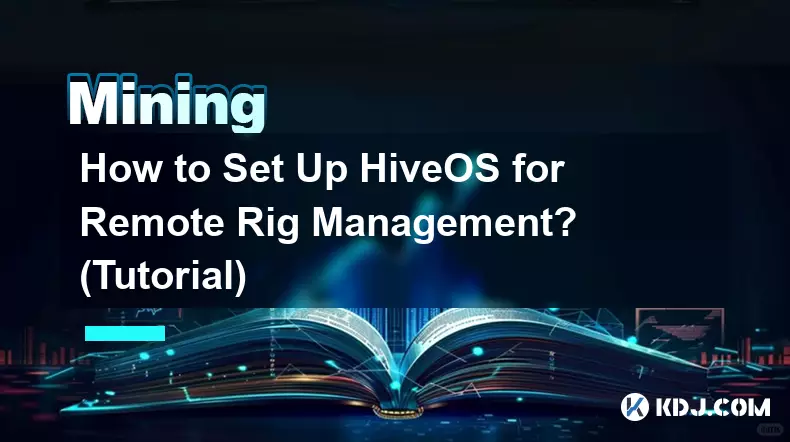
How to Set Up HiveOS for Remote Rig Management? (Tutorial)
Feb 01,2026 at 12:39am
Understanding HiveOS Fundamentals1. HiveOS is a Linux-based operating system specifically engineered for GPU mining rigs, offering lightweight perform...
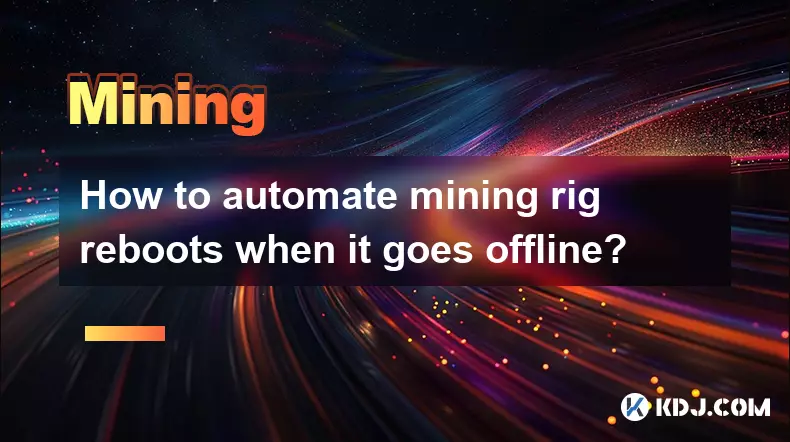
How to automate mining rig reboots when it goes offline?
Jan 23,2026 at 11:00pm
Monitoring System Integration1. Deploy a lightweight agent on the mining rig’s host OS that continuously reports hash rate, GPU temperature, and pool ...
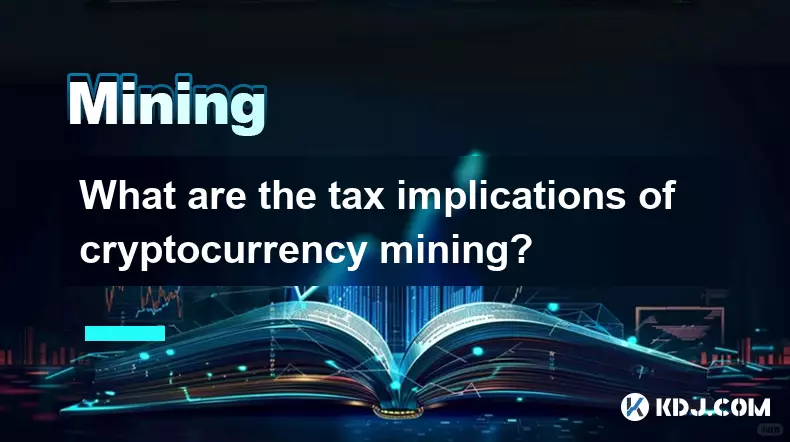
What are the tax implications of cryptocurrency mining?
Jan 23,2026 at 02:40am
Tax Treatment of Mining Rewards1. Cryptocurrency received as a reward for mining is treated as ordinary income by the IRS at the fair market value on ...
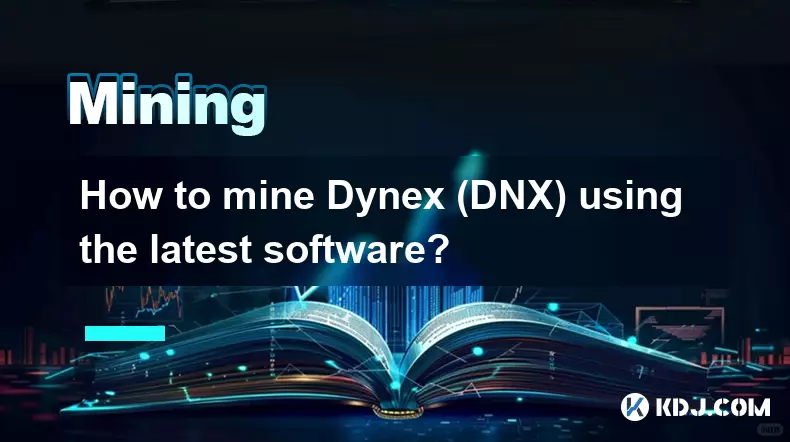
How to mine Dynex (DNX) using the latest software?
Jan 22,2026 at 10:00am
Understanding Dynex Mining Fundamentals1. Dynex (DNX) operates on a proof-of-work consensus mechanism optimized for neuromorphic computing workloads, ...
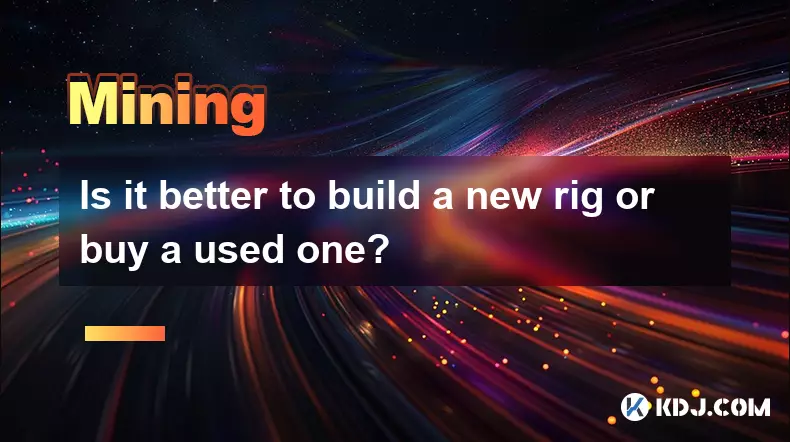
Is it better to build a new rig or buy a used one?
Jan 24,2026 at 10:20pm
Cost Efficiency Analysis1. New mining rigs come with manufacturer warranties, typically covering components for one to three years. This assurance red...
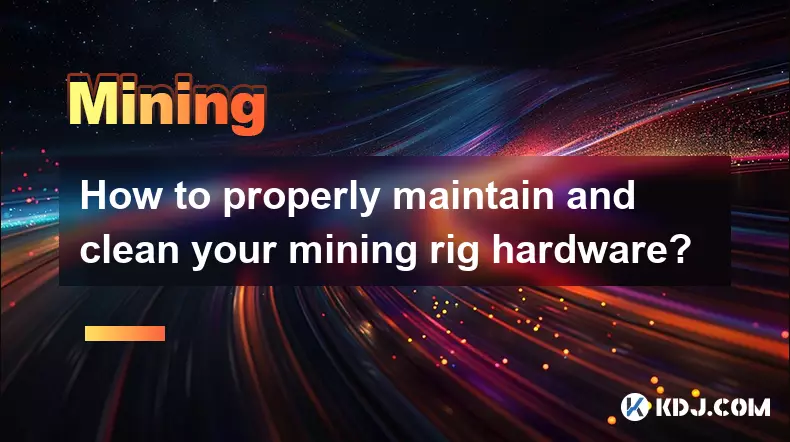
How to properly maintain and clean your mining rig hardware?
Jan 19,2026 at 11:00am
Cooling System Inspection and Optimization1. Dust accumulation inside fans and heatsinks directly reduces thermal dissipation efficiency, leading to h...

How to Set Up HiveOS for Remote Rig Management? (Tutorial)
Feb 01,2026 at 12:39am
Understanding HiveOS Fundamentals1. HiveOS is a Linux-based operating system specifically engineered for GPU mining rigs, offering lightweight perform...

How to automate mining rig reboots when it goes offline?
Jan 23,2026 at 11:00pm
Monitoring System Integration1. Deploy a lightweight agent on the mining rig’s host OS that continuously reports hash rate, GPU temperature, and pool ...

What are the tax implications of cryptocurrency mining?
Jan 23,2026 at 02:40am
Tax Treatment of Mining Rewards1. Cryptocurrency received as a reward for mining is treated as ordinary income by the IRS at the fair market value on ...

How to mine Dynex (DNX) using the latest software?
Jan 22,2026 at 10:00am
Understanding Dynex Mining Fundamentals1. Dynex (DNX) operates on a proof-of-work consensus mechanism optimized for neuromorphic computing workloads, ...

Is it better to build a new rig or buy a used one?
Jan 24,2026 at 10:20pm
Cost Efficiency Analysis1. New mining rigs come with manufacturer warranties, typically covering components for one to three years. This assurance red...

How to properly maintain and clean your mining rig hardware?
Jan 19,2026 at 11:00am
Cooling System Inspection and Optimization1. Dust accumulation inside fans and heatsinks directly reduces thermal dissipation efficiency, leading to h...
See all articles





















![THIS IS THE HARDEST COIN TO GET [POLY DASH] THIS IS THE HARDEST COIN TO GET [POLY DASH]](/uploads/2026/01/31/cryptocurrencies-news/videos/origin_697e0319ee56d_image_500_375.webp)




















































